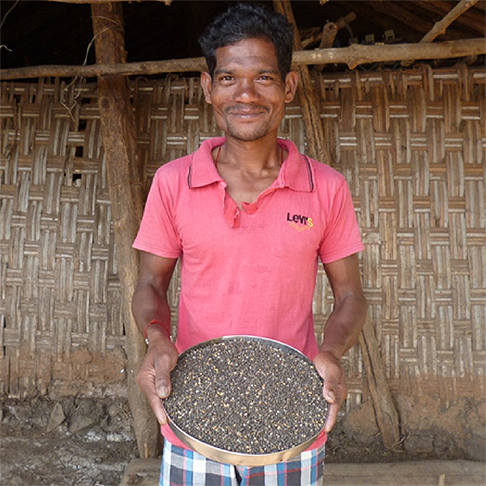Impact stories
Across central and north India, TEAR Australia works with village communities to advance rural livelihoods and women's empowerment. The project focuses on tribal groups and lower castes; indigenous peoples who are commonly excluded from receiving government services.
To improve rural livelihoods, the project forms farmers groups and provides training and assistance in improving the productivity of farms. This can include improved seed varieties, better quality livestock and land forming to better retain water.
To increase and improve the social, economic and political strength of women, the project forms women's self-help groups (SHG) that start small savings and loan schemes, and are then linked to the relevant Indian government scheme for such groups. Women's participation in local government is also promoted.
The Khandwa district in India is one of the areas of focus for this project. Revaram Uike is an indigenous man from Mehulu village in Khandwa. Being a marginal farmer, he had 1.5 acres of stony land, and it was difficult to grow anything. Through this project, land treatment work was carried out to clear the stones and Revaram received agricultural training. As a result, he was able to grow grain to sell and provide income for his family. He says, "I am thankful to EFICOR for choosing a marginal family like me for ensuring my family's livelihood."
Manju Kajle is an indigenous woman from the Garbedi village in Khandwa. She has three children and was struggling to save enough money for her family from farming their land, due to high interest rates from large lending facilities. Through the project, she became a SHG member, and the lower interest rates mean she is now able to save money.
TEAR Australia works in partnership with local NGO Evangelical Fellowship of India Commission on Relief (EFICOR) and is supported by the Australian Government through the Australian NGO Cooperation Program (ANCP).

